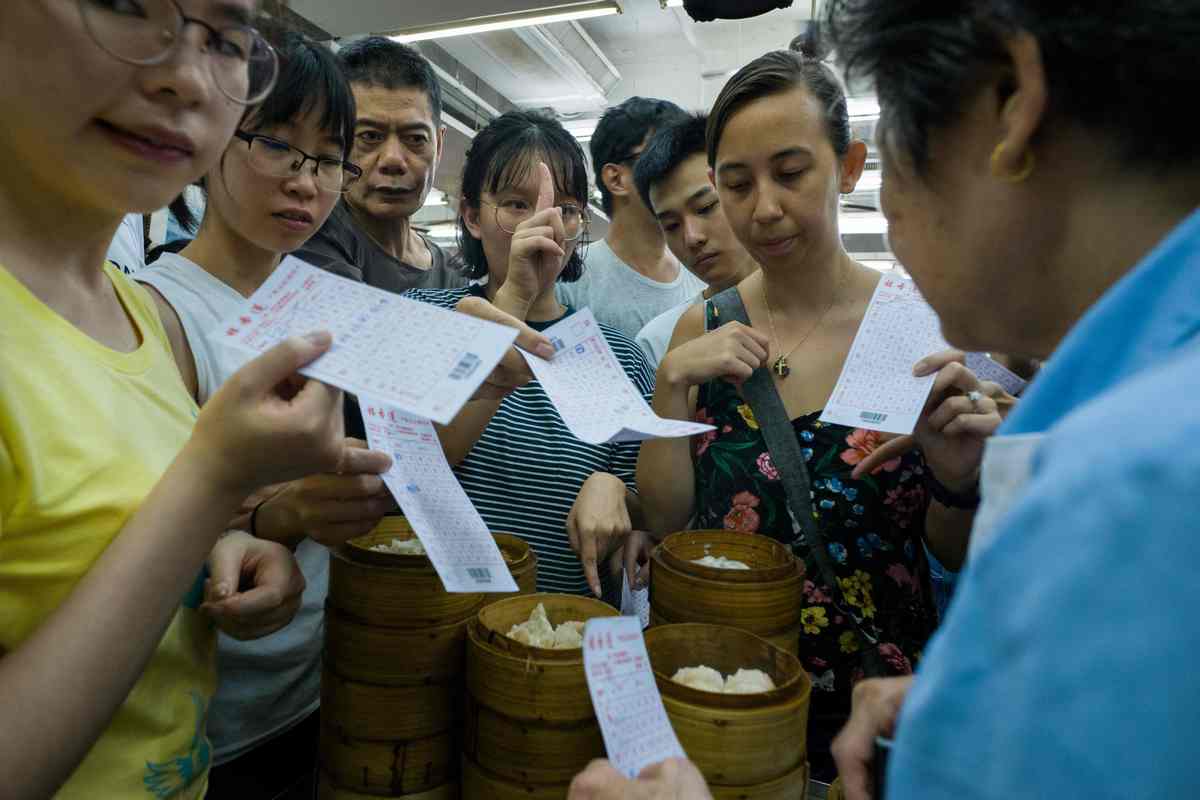Hong Kong dim sum favourite Lin Heung Tea House faces uncertain future

HONG KONG - Impatient diners crowd around carts of steaming dim sum steered by fierce "trolley aunties" at Hong Kong's Lin Heung Tea House, one of the city's most famous restaurants, now fearing for its future.
Lin Heung's traditional homemade dishes, including cha siu bao (barbecue pork buns), har gow (shrimp dumplings) and ma lai go (Cantonese sponge cake), have earned a loyal following from locals with a taste for nostalgia, as well as inquisitive tourists.
The two-storey restaurant in the bustling Central district has multiple top listings in global travel guides and serves customers from 6am until 10pm, seven days a week.
Diners sit elbow-to-elbow at shared round tables, metal spittoons still tucked beside them, the walls hung with decorative bird cages and traditional Chinese numerals used for menu prices.
But the restaurant says the building's new owner has not yet contacted them about renewing their lease, despite it expiring early next year, and they feel in the dark about the landlord's intentions.
That has sparked fears that Lin Heung will be the latest Hong Kong culinary treasure to fall foul of the city's thirst for redevelopment.
The building's landlord, CSI Properties, told AFP it could not comment on the case.

Lin Heung's possible demise has been widely reported by local media and worried regulars say they are visiting as much as they can in case it closes.
Retiree Mr Yip, 80, says he is coming more often to enjoy his favourite dish of pork liver siu mai - a kind of dumpling - and freshly made tea.
Dim sum is often paired with a cup of Chinese tea in a tradition known as "yum cha", literally "drink tea".
"It's my habit to sip a cup of Chinese tea and greet everyone here every week. The tea is special and the people too," Yip told AFP. "I feel comforted when I see the staff. It feels like home."
'SENSE OF BELONGING'
The city's housing market was crowned the most expensive in the world in 2017 - the most recent figures available - according to US-based Demographia and developers clamour for prime real estate.
The selling off of older buildings, as well as spiralling rents, has spelled the end for a number of family-run neighbourhood favourites across Hong Kong.

Lin Heung is one of the city's oldest Cantonese restaurant businesses and is run by the Ngan family, who arrived from the southern Chinese province of Guangdong and set it up in 1926.
It now has three outlets in Hong Kong and has moved its restaurants around over the decades.
The Central venue on Wellington Street is its main restaurant and has been in the same spot for 22 years.
Restaurant spokesman Terence Lam said the current lease would end in March 2019 and he hoped the restaurant would not have to close.
"It's not only a business. It embodies the legacy of the past," Lam told AFP. "It represents the hardship of our ancestors."
Local food writer Wilson Fok said the evolution of "yum cha" culture was intertwined with Hong Kong's history as numerous mainland dim sum chefs fled to the former British colony in the 1950s after civil war-ravaged China.
He describes the atmosphere inside restaurants like Lin Heung as a "piece of history".
"Going to 'yum cha' is not just a cultural habit where people consume food, but also a way of life that shapes our identity," said Fok.
"Some of these old traditions are often lost in our fast-paced society," he added.
Tourists visiting the tea house said they appreciated the restaurant's traditional approach - a rarity now in Hong Kong.
"We usually sit with family or friends in China. But here, we share tables with people we don't know," said 20-year-old mainland Chinese visitor Wu Yutung.
Brazilian tourist Marcelo Garcia, 47, who said he had never before eaten dim sum, described Lin Heung as "an environment with a huge amount of energy".
"People probably come here again because they feel a sense of belonging," he said.